From Tokyo, in Cork, making fiddles, music, and friends
‘Tis a long way from Sliabh Luachra Haruaki was reared
A BIG thank you to Ellie O’Byrne for her first piece on Tripe + Drisheen: Who speaks for Cork’s trees. Journalism like that takes time, effort and talent. Ellie will be back regularly on T+D. Next week, there’ll be a Q&A, a new feature which I hope to publish regularly. And now for the main dish, first profile piece on Tripe + Drisheen, a man I first met in Kyoto, but living here in Cork: Haruaki Saito.
In the good old days - circa 12 months ago - this interview would have been in a corner of The Corner House on Coburg Street.
There’d be a table full of pints and Tayto bags torn open, the pinnacle of Irish pub food.
There’d be me talking shite, and there’d be Haruaki Saito, 35, arms folded, serious, listening politely as I rambled my way to the crunch question: how did a buck from Tokyo end up in Cork making fiddles in Vegter Violins, around the corner on Camden Quay?
To which Haruaki might have pointed out that he also repairs fiddles. Not because he’s pedantic, but because he’s precise. And then he’d take a slug of his Beamish, because that’s his pint of plain.
Advance
Haruaki has always been a bit of a black sheep in the Saito family. Take, for example, his interest in music in general, and his absolute grá for trad music.
The Saitos, he told me, are not a musical family. The first instrument Haruaki picked up, aged 15, was an erhu, a Chinese two-stringed traditional instrument, which a school friend had put him on to. Not exactly a teenage boy in his bedroom with a guitar kind of stuff.
The erhu, and his friend who was tinkering around on electronic music, triggered what would become a lifelong interest in the vast and elastic universe of music for Haruaki.
His route into Irish music came not long after when he was browsing through a music rental store in Tokyo and picked up a compilation CD of world music.
“There was one track which was a reel set, and I was really impressed by that track. I just fell in love with traditional Irish music at that moment,” Haruaki told me a few years back in an interview for The Japan Times. “I guess it was the rhythm that moved me.”
Following high school, Haruaki left Tokyo for Nagoya, in western Japan, where he attended a technical college learning how to make and repair violins. From college, he moved back to Tokyo where he picked up a full-time job repairing violins in a workshop in the capital. He stayed put for the next ten years, working on his craft and nursing hundreds of bows and violins back to full health.
Back in Tokyo, Saito tried his hand at playing trad music, taking up the fiddle, but it was a struggle. Also, at the workshop Haruaki said his bosses were “not very happy that I was more interested in trad music than classical music.”
While that situation discouraged him, he kept up his interest in listening to trad music and eventually picked up the button accordion. “I think that was much more suitable for me than the fiddle, it was certainly more pleasurable to play, on my own or with friends.”
Retreat
As life paths go, Haruaki’s is par for the course: school, college, specialization, job, hobbies. But, the path he navigated was often lonely.
He spent a great deal of his school years not going to school. In fact, Haruaki spent most of it at home.
“When I was a child I was actually a hikikormori,” Haruaki said. A lot has been written about hikikormoris, and a lot of it is wide of the mark. The Conversation is on point here:
…some people don’t reemerge from natural periods of isolation. Instead, they show extreme and persistent withdrawal lasting for decades, causing distress to themselves and those who care for and support them. In Japan, this pattern of behaviour is so common it’s now known as “hikikomori”.
“When I was a hikikomori I didn’t like myself,” Haruaki told me. “So, I was the kind of odd one. Living in Japanese society, you have to do as others do. I just couldn’t. I tried to pretend, but after 10 years of working, I was almost….exhausted. My body and mind were in a bad state at that time.”
In 2015, Haruaki explained how one day he woke up unable to move. He was ferried to hospital by ambulance, but the doctors couldn’t find an exact cause. However, the left side of his body was paralyzed for several months.
It was during this time he made the difficult decision to do what he really wanted to do with his life. Leave, and follow his heart.
New beginnings
Naturally, Haruaki’s family were concerned. But the heart wants what the heart wants, and Haruaki felt it was either do, or don’t, and he didn’t want to deal with the don’t part.
And so in 2016 he made the move to Cork. He had visited Ireland the previous year- before he was rushed to hospital in Tokyo - and while he was here, he packed in as many places as he could. The holy ground for Haruaki is Sliabh Luachra, the border area around Cork, Limerick and Kerry that is the well spring of so much great trad music.
In the the nearly five years he has been here in Cork, Haruaki’s put down roots, made friends, mastered English and become an integral part of Vegter Violins, which is run by brother and sister Hugo and Niamh Vegter. He’s done all this on his own, but he’s never shy of showing his appreciation for all those along the way that have helped him.
Working at Vegter Violins is a much friendlier working environment than the one Haruaki was used to in Tokyo. “Hugo (his boss) is both a friend and a colleague,” he says. “He’s always helping me,” he added.
Being at the workshop has also been an ideal route into the trad community, as many of the musicians he regularly attends gigs to hear, and sometimes even play with, use bows and fiddles that he has serviced and repaired.
“I was so lucky to make friends with top-class musicians,” he says. “Being a violin maker in Cork has helped me to be part of their community, to make friends and have a strong bond with them.”
His workmanship also stands up.
“Haruaki does exceptional work and has already impressed professional musicians with the quality of his violins tone and playability,” Niamh Vegter said, adding that just about the only silver lining to come out of the long year of endless lockdowns has been that Hugo and Haruaki have had more time to spend making their own violins.
I suppose the best way to speak about the sound of a violin is to hear it in action. To wit, this video of fiddler Caoimhe Flannery playing a pair of jigs on one of Haruaki’s new violins is beautiful. Watch it, and watch it again.
Haruaki, in typical modesty says “he is quite happy with the violins” and he’s got good feedback from musicians. He’s currently at work on two new violins and has a viola in the mix too.
Macdara Ó Faoláin is one of the many musician friends that Haruaki has made while in Ireland. Like Haruaki, Macdara is also a luthier, but he’s based in Rinn, in Waterford. Macdara came to know Haruaki through his brothers, Pax and Cárthach, who are also musicians.
“I was immediately blown away by his stylistic playing,” Macdara told me. “His music was pure Sliabh Luachra and I really enjoyed it. Haru’s determination to learn a music so far from his home will always inspire me,” he added.
Macdara said Haruaki’s love for Irish music and his craftsmanship are bound together in his violins. “His perfectionism comes out so clearly in his violins”.
This year, and last
Like everyone, Haruaki had plans for 2020. He was going to take a trip back to Tokyo, he was going to meet his family, and his fiancée Miyuki. And he was going to get married. The pair met, perhaps unsurprisingly, through Irish music; Miyuki is a concertina player from Chiba, a prefecture near Tokyo.
“It’s been one of the most difficult years I had, but luckily I have my fiancé with me,” he said. The pair talked everyday over the past year, and Miyuki was finally able to make it to Ireland this past December. Like many others, their days in lockdown consist of a lot of walking, to the Lough and Fitzgerald’s Park, which are both nearby where they live.
The pair have also been busy with paperwork for their marriage which they will send off to the embassy this month. Unfortunately, by the time it comes through Miyuki will have likely returned to Japan.
“I absolutely miss live music and sessions,” Haruaki told me over the phone recently.
“It’s what I miss the most. Going to the pub after work, drinking a nice pint of stout, playing music and talking about…shite,” he said laughing.
Haruaki has put down a few hard years finding his feet in Cork, but this past one has been one of the toughest he said. Trying to keep motivated is particularly a struggle, especially with not being able to play music in the company of others.
Instead of pub sessions, he meets up with trad players on Facebook and Instagram. He also occupies his time with Pokemon Go, and the occasional slide over to his Nintendo Switch. And he’s been doing a bit of cooking too. Like every Japanese person who lives outside Japan, one of the things he misses most is Japanese food. I get that.
“I have to get used to the food here,” he says. As with other immigrants he also has to get used to the Irish way of doing things.
“In Japan everything is precise, but in Ireland, not really.”
“I kind of find that Irish people are a bit similar to Japanese people. Irish people don’t really say what they think. After they leave, they’ll start complaining and criticizing,” Haruaki says laughing, adding “I think it’s kind of similar in Japan.”
When the pandemic is finally under control and we’re free to move around Haruaki’s looking forward to hitting the road, and showing Miyuki the pubs and friends throughout Ireland that have been locked away for the past year. No doubt, the road will lead in and out of Sliabh Luachra, to sessions, and acquaintances new and old.
As for the future, Haruaki wants to perfect his craft, and keep making instruments, music and friends. Above all he wants to keep on living his life on his terms.
“Since moving to Ireland the biggest thing I’ve learned isn’t about music or making violins, it’s about me. I thought (while living in Japan) oddness was a very bad thing, but it can also be your strong point. This gives me a huge amount of self-confidence.”
As Macdara, Haruaki’s friend and fellow luthier put it: Gura fada buan é! (Live long and prosper)
Míle buíochas Haruaki-san agus 頑張って!
Haruaki is on Instagram, where you can see updates on his fiddle making. Vegter Violins is currently closed to the public in line with Covid-19 restrictions, but they offer a full range of services and the online shop is open.





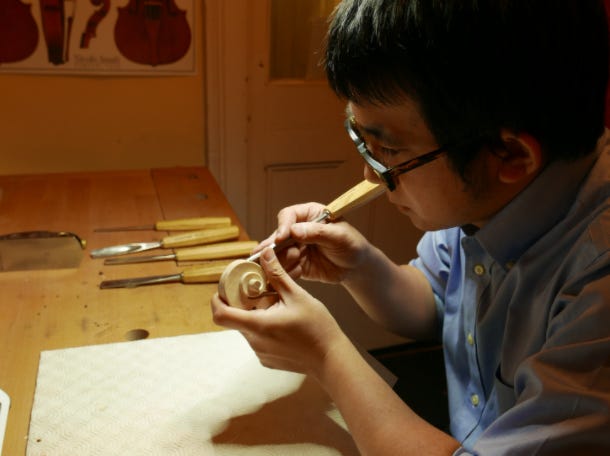
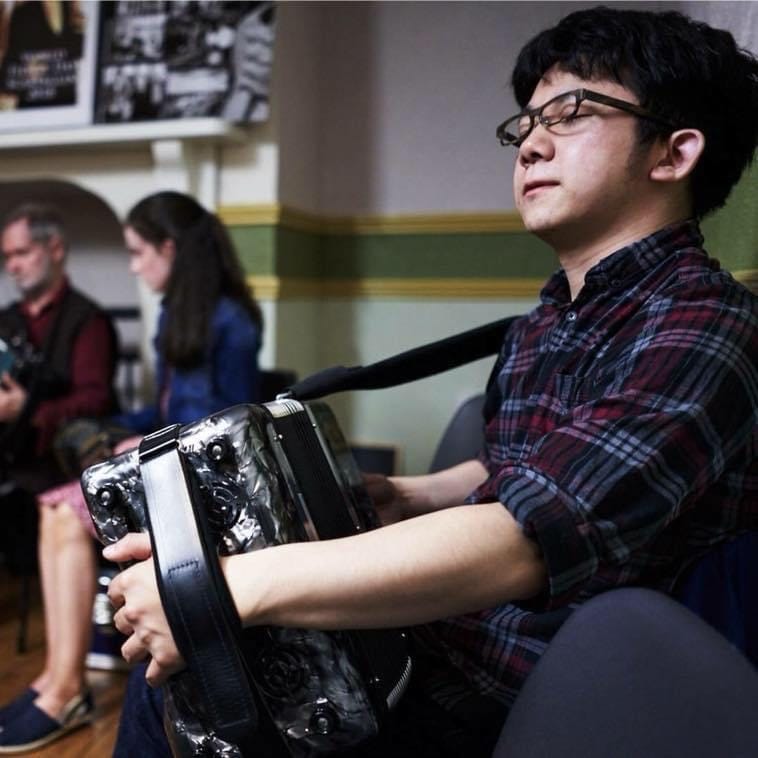
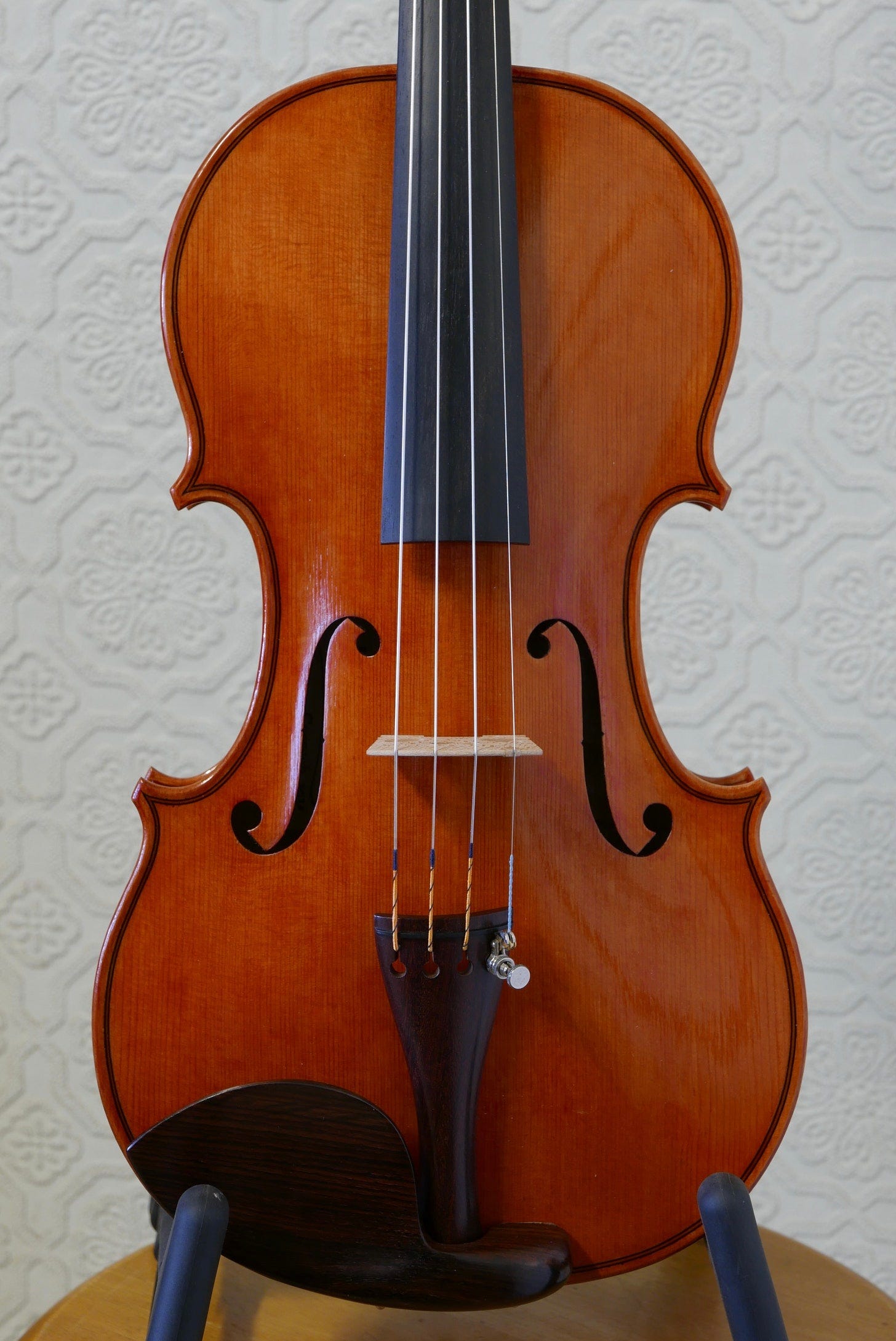
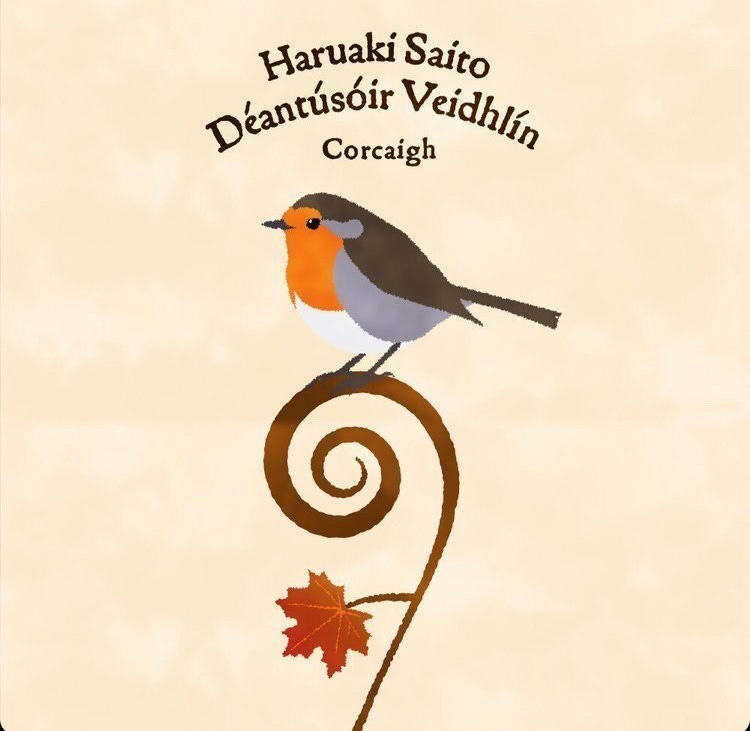
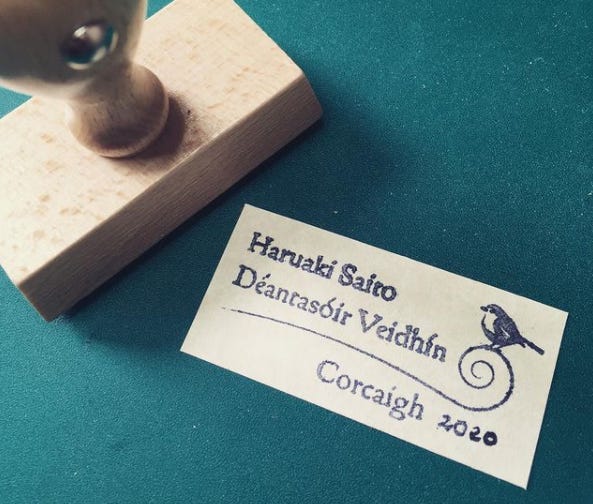
NOTED HARU ON RECENT TV GREAT SOUND FROM VIOLIN I HOPE TO VISIT VEGTER VIOLINS HUGO AND NIAMH SOON FOR CHOICE OF FULL SIZE VIOLINS AND VIOLAS AVAILABLE INSPIRATION FROM NICOLA BENEDETTI ALSO IN TV WITH HAVANAISE BY SAINTSAENS AGE 16 A TRUE SOURCE OF INSPIRATION IN THIS AGE OF LIFELONG LEARNING PLEASE KEEP IN TOUCH JOHN J CONLON